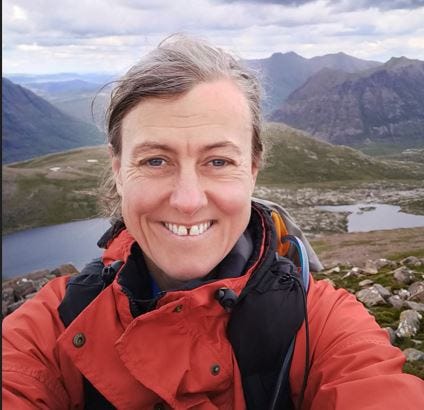As spring slowly unfolds across the country, bringing with it the renewal of life and the promise of warmer days, there's an exciting opportunity for nature enthusiasts and conservationists alike to make an impact. The Freshwater Habitats Trust is spearheading the PondNet Spawn Survey, a crucial initiative aimed at mapping the breeding sites of two of the country’s most familiar amphibians: the Common Frog (Rana temporaria) and Common Toad (Bufo bufo). This survey, running from December to May, is a call to action for all of us who care deeply about our natural world and its inhabitants.
Why Amphibians Matter
We will be talking a lot about fresh water this year, as part of our Puddles to Ponds project and amphibians are essential to our freshwater ecosystems here in Highland. Why? Well they perform essential ‘supporting services’, which are vital for the survival and well-being of a vast array of species, including humans! Structurally they affect the eco-system through activities like soil burrowing and aquatic bioturbation (disruption to sediment), this way they create and maintain habitats for themselves and help other organisms access nutrients. This occurs in both the terrestrial and aquatic environments. Functionally, amphibians are key players in processes such as decomposition and nutrient cycling. Their waste excretion enriches the soil and water with nutrients, which in turn supports plant growth and the broader food web. This nutrient cycling is essential for the productivity and health of ecosystems.
Moreover, these amphibians perform important functions through their role in the food web. As both predators and prey, they can cause predatory changes that ripple through the ecosystem, affecting the abundance and diversity of other species, they in effect keep the system in check.

Another example of the balancing effect they have is when in spring tadpoles help to control algae production, both directly through grazing and indirectly through nutrient cycling. This dual role ensures that aquatic ecosystems do not become overrun with algae, which could lead to the loss of oxygen in water bodies, endangering fish and other aquatic life.
Unfortunately, the global decline in amphibian populations poses a significant threat to these essential ecosystem services. The decline of amphibians means not only the loss of these fascinating creatures themselves - a delight in the spring - but also a potential loss of the critical function they provide to ecosystems and human societies.
Unfortunately, their populations are plummetting globally, making surveys like the PondNet Spawn Survey critical for their conservation here in the UK.
So How You Can Help?
You can help in many ways, but a good place to start is by participating in the PondNet Spawn Survey. It is straightforward, enjoyable, and immensely valuable. Whether you're a seasoned naturalist or a curious back garden explorer, your contribution is valuable so here’s how you can get involved:
1. Spot the Spawn: Keep an eye out for frog and toad spawn in garden ponds, ditches, or puddles during your walks in the countryside or even in your own garden.

2. Complete the Survey: Once you've spotted the spawn, visit the Freshwater Habitats Trust website to complete a quick survey. This survey is designed to be fast and easy, ensuring that observations are recorded without taking up too much of your time.
3. Share Your Discovery: Amplify your impact by sharing your sighting on social media with the hashtag #SpawnSurvey. This not only helps raise awareness but also encourages others to participate in this collective conservation effort. Why not share this blog post?
By taking part in the PondNet Spawn Survey, you're contributing to a nationwide effort to better understand the breeding habits and habitats of these amphibians.
The PondNet Spawn Survey exemplifies how citizen science can drive meaningful change. Through the collective effort of individuals across the country, The Freshwater Habitat Trust can gather comprehensive data that might otherwise be unattainable.
We stand at a critical juncture for conservation, where every action counts. The PondNet Spawn Survey offers a unique opportunity to be part of a larger movement aimed at protecting our planet's biodiversity.
So, this spring, let’s take a step outside, explore the wonders of our local waterbodies, and play a direct role in the conservation of our amphibian friends. Together, we can make a difference.
Imogen Furlong, the High Life Highland Countryside Ranger Manager, is known for her enthusiasm, organisation, and drive. Her deep passion for the Scottish Highlands' wildlife and extensive experience in outdoor education and recreation management have been central to this role. Imogen is a practical and collaborative project manager, empowering her teams to work effectively in communities and contribute to local conservation efforts.
More articles on Amphibians and Freshwater ecology of the Highlands coming soon.
Read about our Puddles to Ponds project here:
Project Launch from "Puddles to Ponds"
The High Life Highland Ranger Service is proud to announce its 2024 educational initiative, the "Puddles to Ponds" project. This innovative initiative is both an educational pursuit and a significant environmental intervention, crucial in our fight against climate change and biodiversity loss.








